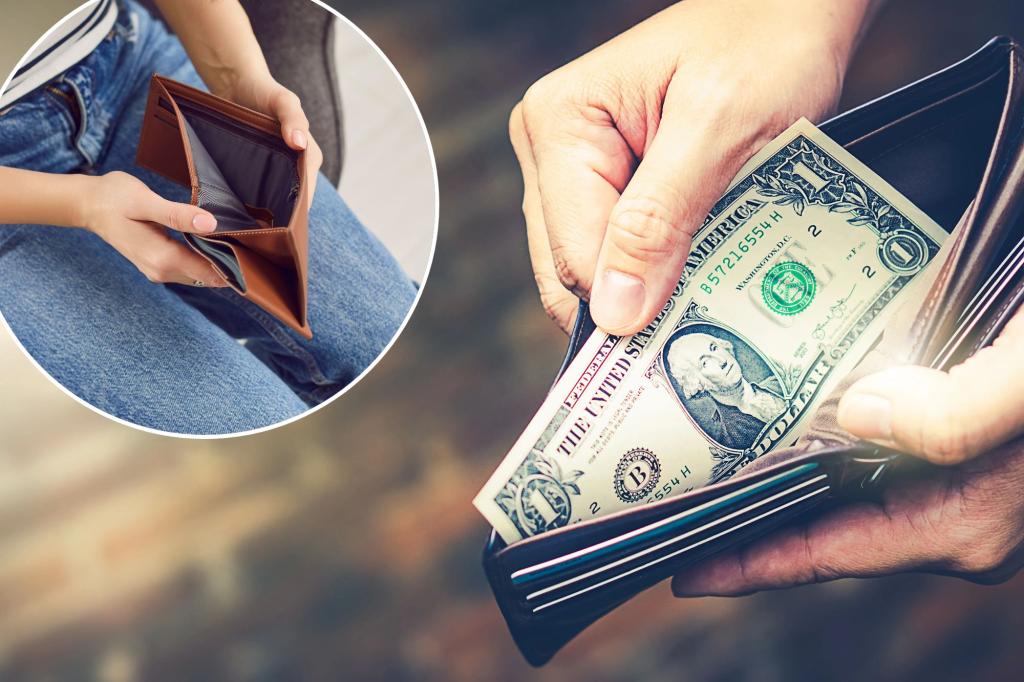The average American has already mentally spent more than half of their paycheck before it lands in their account, according to a new survey.
The survey polled 2,000 employed Americans who make less than $75,000 per year and explored where this money goes, revealing the “anatomy” of a paycheck.
Between mismatched living costs and salary (44%) and sporadic, inconsistent due dates (31%), results found that nearly three in five (59%) pre-plan what gets paid first while waiting for their paycheck, resulting in 51% of those funds being pre-spent.
Overdue bills (38%) are another leading cause in allocating their pay before they have it. In fact, only 40% of those polled don’t have any overdue bills, while 55% have somewhere between one and four during any given month.

Large bills, such as rent or a mortgage (56%), necessities, such as food and medications (51%) and smaller bills like electric or water (38%) are all more likely to be the first things paid after receiving their paycheck than overdue bills (29%).
Conducted by Talker Research on behalf of EarnIn, results also found that the average American spends about 43% of their paycheck within the first three days after receiving it, in addition to the 51% that’s pre-spent.
The survey also put the 50/30/20 budget rule to the test; a rule where 50% of your paycheck should go to needs, 30% should go to wants and 20% should go into savings.
Results found that the average respondent puts the majority of their funds, 64%, towards “needs” such as food, bills and housing.
Only an average of 16% is dedicated to “wants” or something fun, and just 16% gets put into savings.
More than half (56%) indicated that less than 10% of their pay goes into savings and another 23% can’t remember the last time they were able to stash 20% of their income in their savings, as the budget rule suggests.
Only 20% of Americans don’t run out of money or have to live on a tight budget in the days leading up to getting their paycheck.
But for those that do, 62% struggle to afford groceries, pay large and small bills (both 30%) or even medications (16%) and loan payments (16%).
Nearly two in five (39%) will turn to a side hustle when they need additional funds, while others rely on their family (31%) or credit card (28%). Still, that leaves 14% left completely without options.
“Results found that only 5% of respondents can turn to their bank to transfer their paycheck early, while even fewer (4%) can turn to their employer for early pay,” said an EarnIn spokesperson. “In today’s world, employees shouldn’t have to wait days to access the money they’ve already earned. People deserve financial solutions that provide faster access to their pay—regardless of where they bank—so they can manage their money on their own terms, not their bank’s schedule.”

Despite so few Americans being able to rely on their bank for early paycheck access, the average person has been with their bank for nine years, while 14% estimate it’s been between 19 and 20 years.
More than half (57%) attribute this bank loyalty due to the fact that they’re simply comfortable with them.
Only 20% indicate that they stay with their bank because they are able to access their paycheck sooner.
If Americans polled were able to get their paycheck up to two days earlier, a little more than a third (34%) would be able to pay bills on time, while 29% said they’d feel less stressed about finances overall.
Almost one in five (19%) would be able to pay rent on time or even put more money into savings (15%).
Overall, 56% would feel more financially secure if they were able to receive their paycheck up to two days before it typically lands in their account.
